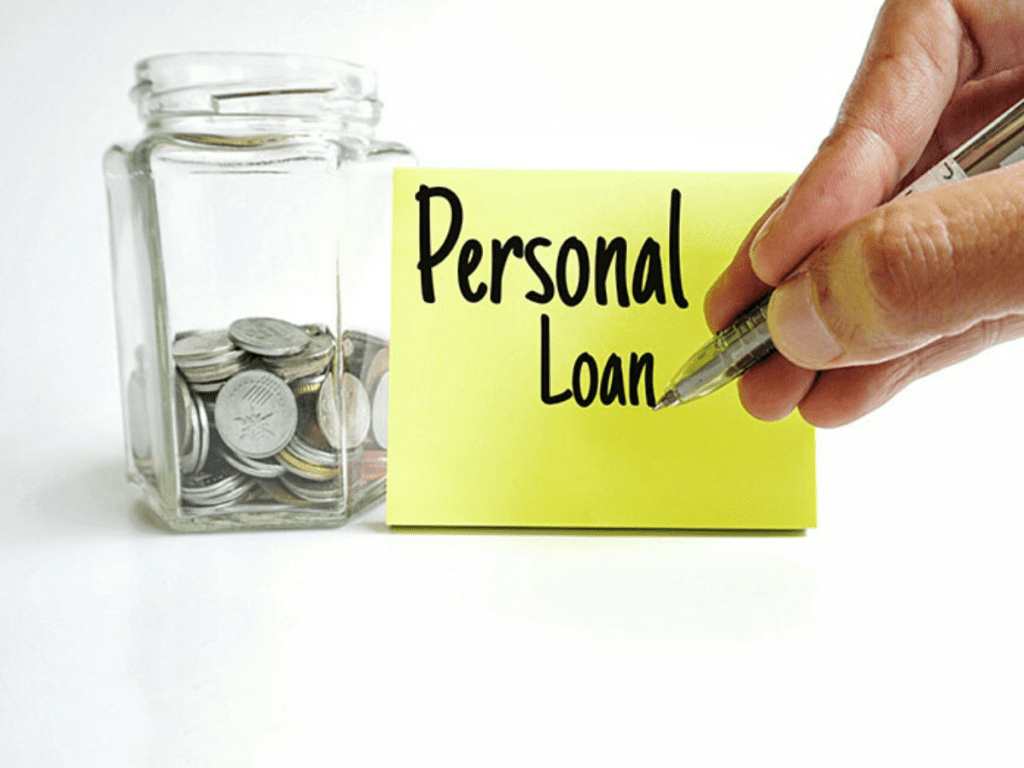Introduction
When an unexpected financial emergency arises, the instinctive reaction is to find a quick solution. Whether it’s a medical emergency, a car repair, a sudden home repair, or any other urgent situation, finding ways to handle the expenses can be stressful. One common option that many people consider is a personal loan. But is it the right option for emergency expenses? In this article, we’ll explore the pros and cons of personal loans, alternative solutions, and the situations where a personal loan might be beneficial or detrimental to your financial situation.
What is a Personal Loan?
A personal loan is an unsecured loan provided by banks, credit unions, or online lenders. Unlike secured loans that require collateral, such as a home or car, personal loans are granted based on your creditworthiness, which includes factors like your credit score, income, and debt-to-income ratio. The amount borrowed is typically repaid in fixed monthly installments over a set period, often ranging from 2 to 7 years.
These loans can be used for a variety of purposes, from consolidating debt to funding home renovations. The flexibility of personal loans is one of the reasons they’re often considered for emergency expenses.
Pros of Using a Personal Loan for Emergency Expenses
- Quick Access to Funds
One of the primary advantages of using a personal loan for emergency expenses is the speed at which funds can be accessed. While the approval process can vary from lender to lender, many online lenders provide quick decisions and fund disbursement. Some lenders even offer same-day or next-day funding, which can be crucial when you need immediate financial assistance. - Fixed Interest Rates and Repayment Terms
Personal loans typically come with fixed interest rates and repayment terms. This can provide stability in your monthly budget, as you’ll know exactly how much you need to pay each month for the life of the loan. Knowing that your payments won’t change can help reduce stress when managing your finances during an emergency. - No Collateral Required
Personal loans are unsecured, meaning they don’t require you to put up any assets as collateral. This is particularly beneficial if you don’t own a home or don’t want to risk your property in case of non-payment. It gives you peace of mind knowing that your personal belongings are safe even if you’re unable to repay the loan. - Improves Credit Score (If Managed Well)
If you have a good credit score and use the loan responsibly, repaying the loan on time can positively impact your credit score. Having a positive payment history on your personal loan can improve your creditworthiness, making it easier to qualify for loans in the future at better rates. - Flexible Loan Amounts
Personal loans can be used for a wide range of emergencies, from minor to large-scale expenses. Depending on the lender and your credit profile, you may be able to borrow anywhere from $1,000 to $50,000 or more. This flexibility allows you to choose a loan amount that aligns with the emergency expenses you’re facing.
Cons of Using a Personal Loan for Emergency Expenses
- High Interest Rates for Poor Credit Scores
While personal loans can come with competitive interest rates for borrowers with good credit, those with lower credit scores may face higher rates. The higher the interest rate, the more you’ll end up paying over the life of the loan. This can make borrowing for an emergency much more expensive than it initially seems, potentially leading to financial strain. - Potential for Debt Accumulation
If not managed carefully, taking out a personal loan to cover emergency expenses could result in significant debt accumulation. This is particularly true if you take out a large loan that you can’t afford to repay. Missing payments or defaulting on the loan could harm your credit score and lead to additional fees and penalties, compounding your financial difficulties. - Fees and Charges
Many lenders charge various fees for processing personal loans, including application fees, origination fees, late payment fees, and prepayment penalties. These charges can add up quickly, making the loan more expensive than originally anticipated. It’s essential to read the fine print and understand all the fees associated with the loan before agreeing to borrow. - Risk of Overborrowing
When in an emergency situation, it can be tempting to borrow more than you need, especially when lenders approve loan amounts based on your creditworthiness. Borrowing a larger sum than necessary can result in debt that stretches beyond your ability to repay. It’s important to borrow only what’s necessary for the emergency and not to use the loan as an opportunity for unnecessary spending. - Impact on Future Financial Flexibility
Taking on a personal loan can impact your ability to borrow in the future. Personal loans add to your debt-to-income ratio, which is an important factor that lenders look at when approving you for future credit. If you already have a personal loan, you may find it harder to qualify for other loans or credit cards, especially if your repayment schedule stretches over many years.
When Is a Personal Loan a Good Option?
Personal loans may be the right choice for emergency expenses in certain situations. Here are some examples of when using a personal loan could be a good option:
- Medical Emergencies
If you or a loved one faces a sudden medical emergency, a personal loan can provide the funds necessary to cover hospital bills, surgeries, or medications. Medical emergencies are often unpredictable, and many individuals don’t have the cash on hand to cover such expenses. If you have a good credit score and the loan terms are favorable, a personal loan may offer a solution to this urgent financial need. - Home Repairs or Replacements
If your home faces an unexpected repair, such as a broken furnace, leaking roof, or plumbing issues, a personal loan can help cover the cost of repairs. These types of emergencies can be costly, and if you don’t have sufficient savings, a personal loan could be a way to ensure that your home remains livable and safe. - Car Repairs or Replacements
A car breakdown can throw a wrench in your daily routine, especially if you rely on your vehicle to get to work or manage family responsibilities. In such cases, a personal loan could help pay for repairs or the purchase of a new vehicle if needed. Since cars are essential for many people’s daily lives, securing a loan quickly can help you get back on track. - Consolidating Emergency Debt
If you have multiple credit cards or short-term loans that you’ve used for emergency expenses, consolidating these debts into a personal loan can simplify your payments. A personal loan may offer a lower interest rate than credit cards, helping you save money and pay off your debt more quickly.
When Should You Avoid a Personal Loan for Emergency Expenses?
While personal loans can be helpful in emergencies, there are certain situations where they may not be the best option. Here are some scenarios where a personal loan should be avoided:
- If You Have Poor Credit
If you have a low credit score, you may be offered a personal loan with a high interest rate. In this case, borrowing money might only add to your financial burdens and make your emergency more expensive. If your credit score is too low, you might want to explore other options like credit counseling or looking for a co-signer for a loan. - When You Have Limited Income
If your income is low or unstable, taking on additional debt through a personal loan could make it difficult to meet monthly repayments. Missing payments can harm your credit score and may even lead to default, making it harder to secure loans in the future. - When the Loan Terms Are Unfavorable
If a lender offers a personal loan with high fees or unfavorable terms, it may be best to look elsewhere. Before agreeing to any loan, be sure to read the terms and conditions, including interest rates, fees, and repayment schedules. If anything seems unreasonable, it’s worth shopping around for a better deal.
Alternatives to Personal Loans for Emergency Expenses
If a personal loan doesn’t seem like the right fit for your emergency, there are several alternatives you can consider:
- Credit Cards
If your emergency expenses are relatively small, using a credit card could be an option. Many credit cards offer an introductory 0% APR for balance transfers or purchases, giving you some breathing room before interest kicks in. - Emergency Savings Fund
The best way to handle an emergency is to have an emergency savings fund in place. Ideally, this fund should cover 3 to 6 months’ worth of expenses, giving you a financial cushion in case of emergencies. - Borrowing from Family or Friends
If possible, consider borrowing money from family or friends. This may come with fewer fees and lower interest rates, and it can help you avoid the stress of dealing with a formal lender. - Short-Term Payday Loans
While payday loans come with high fees and should generally be avoided, they are sometimes an option for quick, small loans. Be sure to understand the costs before proceeding.
Conclusion
Personal loans can be a viable option for emergency expenses in some situations, especially when you need quick access to funds and have a clear plan to repay the loan. However, they come with risks, particularly if you have poor credit or limited income. Before taking out a personal loan, it’s essential to weigh the pros and cons, understand the loan terms, and explore other alternatives. In some cases, building an emergency savings fund or considering other borrowing options may be better suited to your financial situation. Always approach borrowing with caution, and ensure that you can handle the repayment terms to avoid further financial stress in the future.

